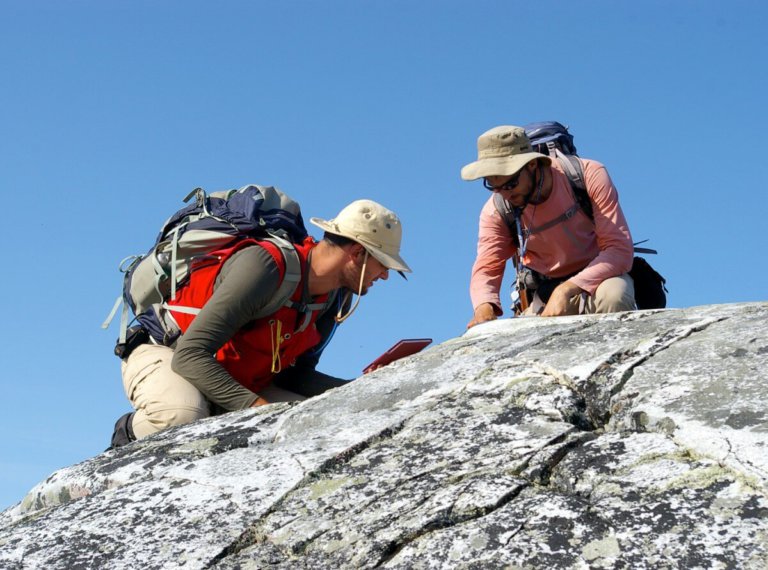
Latin America is a region brimming with opportunities for STEM graduates.
In Brazil, the local technology jobs market is booming, with roles related to data science, analytics, product ownership and management, DevOps and development were the most requested by employers last year, according to recruitment firm Hays’ survey. The World Economic Forum lists Software and Applications Developers and Analysts, as well as Data Analysts and Scientists, as emerging job roles in Argentina.
With Central and South America holding one-fifth of the world’s proved oil reserves, it has a steady supply of investment from national, regional and global players. Studies by the National Ocean Industries Association and the American Petroleum Institute projects nearly 230,000 jobs will be created annually thanks to private sector spending commitments.
Add to that the growing healthcare needs of its more than 600 million population, more hospitals are being built and medical equipment is increasingly imported to keep up with this demand. Both public and private providers are in need of a highly-skilled workforce to manage an increasingly aging population.
Several thousand kilometres north is a university that would be the perfect springboard to land these exciting new jobs: The University of Regina.

University of Regina
Located in Saskatchewan, Canada, this public research university is home to nine undergraduate faculties and a Centre for Continuing Education. Its science faculty houses more than 30 academic programmes in the areas of Biochemistry, Biology, Chemistry, Computer Science, Geology, Mathematics, Physics, and Statistics.
Whatever the course, many steps are taken to close the gap between what employers need and what universities produce. Part-time, summer, internship, volunteer work and full-time positions are available, as are career fairs and career development sessions. Students can also apply for Global Internships to gain professional and personal skills in a foreign workplace.
Senior students in the Actuarial Science undergraduate degree programme are eligible to participate in an optional 12-16 months internship with a participating employer. Whereas future geologists aiming to work in petroleum, mining and environmental industry benefit from the applied learning opportunities available here, including internships with the Saskatchewan Geological Survey, the organisation that compiles and maintains information about the geology, mineral and energy resources in the province.
Aspiring data scientists can enrol in various combinations of qualifications available for the computer science programme. The co-operative education programme also grants students career-related work experience while they’re in school, on top of money to finance their education, job search skills, and an improved chance of obtaining full-time employment upon graduation.

Jhonatan de Souza Oliveira
It’s a learning environment that regularly exceeds expectations, according to Jhonatan de Souza Oliveira from Brazil, who graduated with a Master and PhD in Computer Science. Another key factor to the university’s track record in boosting employability is the high-quality of teaching he saw from his first MSc class, where his professor’s passion for what he was teaching was evident. Faculty here may be internationally recognised, but students do not have trouble accessing them for advice or mentorship.
This reputation for building supportive relationships between students and supervisors was well-known, and Jhonathan can attest to it first-hand.
“This relationship was very helpful for my career prospects, for all the opportunities and contacts that my supervisor helped me to get in touch. I’ve been contacted by companies such as Google, Amazon, Unity3D, Huawei, among others, and I am in research collaboration with researchers from UCLA and Cambridge University,” he explained.
For Supriya Bhat, studying for her Master and PhD in Chemistry at the University of Regina armed her with impressive soft skills.
This is exactly what 2019’s employers are looking for together with hard skills, according to a LinkedIn analysis. Creativity topped the list of desired attributes, followed by persuasion, collaboration, adaptability and time management. As similarly found in the World Economic Forum’s Future of Jobs report, which detailed the rising value of ‘human’ skills like originality, initiative and critical thinking as technology and automation advances, this combination of skills produces highly competent job candidates.

Supriya Bhat
Supriya got to hone these very soft skills during her studies thanks to the practical work experience opportunities available at the university. She got to travel to Germany to obtain hands-on training on atomic force microscopy, which allowed her to develop a new technique on integrated atomic force – confocal microscopy in her final PhD year. She also had the opportunity to travel to conferences in the Netherlands which helped her network with researchers around the globe.
“I truly believe that my language, communication and personable skills have significantly improved throughout grad school,” Supriya explained.
“My constant interactions with the faculty, students and colleagues has improved my confidence, leadership skills, and management skills. I find my leadership and project management skills particularly valuable in my current role [as a postdoctoral fellow].”
If you too want to capitalise on the abundant STEM opportunities thriving within Latin America, sign up today to the University of Regina.
Follow the Faculty of Science at the University of Regina on Twitter and Instagram
Liked this? Then you’ll love…
University of Regina: Where scientific inquiry meets societal impact
University of Regina: Uncover the science behind graduate success







